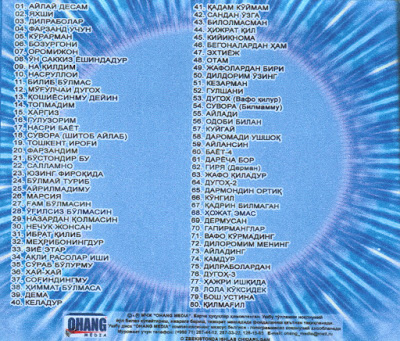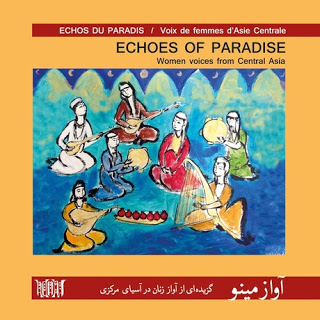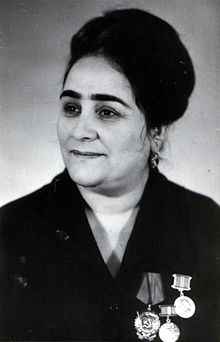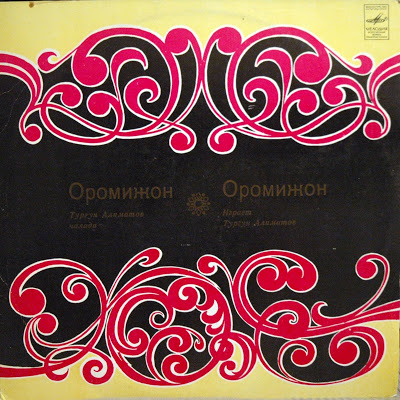Here the fourth post in our series of MP3-CDs of great singers of the Maqam traditions of Uzbekistan, published years ago in Uzbekistan and brought by our friend Danny from a trip to Uzbekistan. This time the great singer Rasul Qori Mamadaliev
(1928-1976).
Jean During wrote about him in the booklet to the CD "Ouzbekistan - Les
Grandes Voix du Passé (1940-1965)", on which he published three tracks by the
great singer, the only ones available in the west:
"Rasul Qari Mamadaliev (1928-1976) was another brilliant successor of
Jura-khan Sultanov whose repertoire he picked up, listening to him perform
at toy. He also studied with Hamraqul Qari and Damla Halim Ibadov from Bukhara.
Just as he learnt Khorezm repertoire, listening to Sultanov, he also made his
own synthesis of the three great Uzbek-Tajik traditions. He was exceptional in
other ways too: blind, he had a phenomenal memory and, if he liked a tune, was
able to pick it up after one or two hearings. He put together a repertoire of
thousands of songs, just listening to the radio or recordings. Short and very
fat, his powerful, chubby hand had trouble reaching the low notes at the bottom
of the neck of the tanbu so he held his Instrument vertically and only played
in the top register with a tension and a density more akin to Uigur or Azeri
lutes than to those of Ferghana. He was in great demand at toy for the extraordinary atmosphere he was able to
create, and also for his sense of humour and witty tongue. In this context, his
music was much more powerful and impressive than in his recordings for the
radio. Unfortunately the technical quality of his toy recordings was not good
enough to be included in this anthology.
For certain connoisseurs, he is the greatest classical bard (hafiz) of this century, especially when one considers the range of his capabilities (an
unequalled vocal and instrumental technique serving all genres and traditions),
his incredible memory, his humour and wit. What's more, he was generous (he
would sing for nearly eight hours a day) and would give his audiences exactly
what they wanted, at times even more, with songs in a lighter vein and Russian
melodies.
One anecdote reveals the provocating aspect of bis personality, and his respect
for tradition. In his village, near Quqand, Rasul Qari had more than a dozen
students. One night, at a party they had all been invited to, Jura-khan Sultanov
turned up. From 6 p.m. until l a.m., Rasul Qari had each of his students sing
the best pieces from Jura-khan's repertoire, taking away tbe latter's chances to
demonstrate his superiority. Jura-khan just waited quietly for his turn. When he
was finally asked to sing, he rolled up his sleeves, pitched the tanbur up a
tone, and performed one of his compositions that nobody knew, to a poem by
Nava'i. His interpretation was so astounding that he eclipsed everyone else.
When he had finished, Rasul Qari came up to him and fell to his feet, begging
his pardon. Although not a student of Jura-khan, he had learnt many of his
compositions thanks to the radio. Rasul Qari also died singing, from a cerebral
stroke, at the age of forty-seven."



%20-%20front.jpg)
%20-%20back.jpg)
%20-%20front.jpg)
%20-%20back.jpg)
%20-%20front.jpg)
%20-%20back.jpg)
%20-%20front.jpg)
%20-%20back.jpg)
%20-%20front.jpg)
%20-%20back.jpg)


